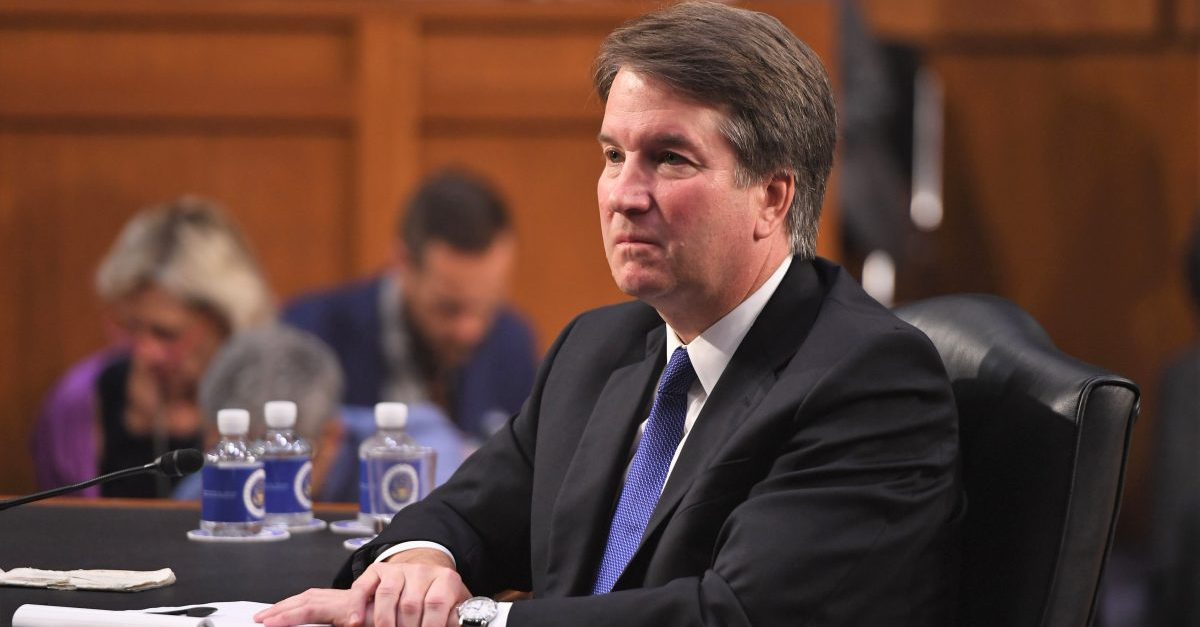
A joint opinion-editorial by five former federal prosecutors who have worked with sexual assault victims lays out the case for why they believe Christine Blasey Ford‘s attempted sexual assault allegation against Brett Kavanaugh should be fully investigated by the FBI or an independent outside counsel.
Penned by Mimi Rocha, Barbara McQuade, Jill Wine-Banks, Joyce White Vance and Maya Wiley, the article is not an absolute assertion of Kavanaugh’s guilt but rather seeks to dispel the notion that Ford’s allegations against the Supreme Court nominee boil down to a “he said, she said” situation. Instead, the prosecutors argue, there are distinct pieces of evidence which lend an aura of credibility to Ford’s claims.
1. Corroboration
In 2012, Ford described her account of the alleged attack to a therapist. Notes taken during this therapy session were provided to and reviewed by the Washington Post. Ford apparently did not name Kavanaugh during the 2012 session, however, her recollection of the event six years ago and shared with her therapist tracks with the allegations leveled against Kavanaugh in the letter which set this entire process in motion.
The prosecutors note, “To believe that this is a made-up tale to prevent Kavanaugh’s confirmation, Ford would have had to plant the seeds of this story in 2012. That makes no sense.”
2. The Polygraph
Lie detector tests are famously controversial for their accuracy. But they remain in use by law enforcement to this day as a basic indicator of assessing credibility. And Christine Blasey Ford has passed one such test.
“While not determinative, the fact that Ford passed a polygraph administered by a former FBI agent lends credence to her claims,” the prosecutors write, while also acknowledging that lie detector tests are not admissible in court “because they are not always reliable.” Still, the prosecutors note, “the FBI and other law enforcement agencies frequently use polygraph tests to assess the credibility of witnesses and defendants.”
3. Ford Has No Motive Here
“Ford…by all accounts is not a particularly politically active person,” the argument goes, and therefore her allegations cannot be chalked up to a simple exercise in partisanship. Then the prosecutors note the fallout involved with coming forward to share such accusations. They write, “Ford knew that she would be personally attacked in front of her children, colleagues, students and friends. There is no reasonable explanation for why she would subject herself to such humiliation [except that] she felt she had a duty as a citizen…”
This more or less tracks with the timeline of events. Recall: Senator Dianne Feinstein (D-Calif.) kept the original letter secret from her own colleagues in the Senate–including her fellow Democrats. The letter only became public knowledge after its existence was reported on by The Intercept. The former prosecutors’ argument here essentially mirrors Ford’s initial hesitancy about coming forward. In comments to the Post, she said, “Why suffer through the annihilation if it’s not going to matter?”
4. The Delay in Going Public Is Meaningless
Dismissing the idea that Ford’s aforementioned hesitancy about coming forward is indicative of any lapse in credibility, the authors note, “As prosecutors, we have learned that victims of sexual assault do not always come forward immediately — and often never do — because they are shamed by society, fear not being believed…or just want to move on with their lives.”
The former prosecutors also note that delays in reporting crimes don’t have any bearing on their truth or falsity and then shift to a brief discussion about the various pressures of coming forward during various times and in various environments. They write, “[I]t would have been even more daunting for a 15-year-old girl in the 1980s [to come forward].”
5, Creating a Witness for the Defense
The former prosecutors’ final argument against dismissing Ford’s allegations has to do with Brett Kavanaugh’s longtime friend Mark Judge, a conservative author and commentator. Ford claims Judge was present at the party and in the room when Kavanaugh allegedly tried to rape her. So far, Judge has refused to testify and said he has no recollection of the alleged attack in question–not exactly a denial of the allegations.
But, the authors ask, “Why would she create a defense witness…[and] place at the scene an individual who could, because of loyalties to his friend, contradict her account if she were making this up?”
[Image via SAUL LOEB/AFP/Getty Images]